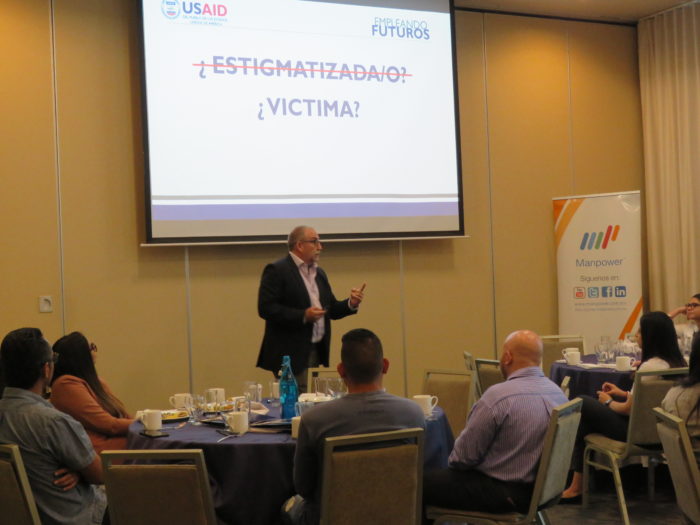Meeting the Millennial Challenge in Honduras
As members of the millennial age group continue to enter the workforce, businesses wonder how to attract them as employees while also meeting their unique needs. Several Honduran businesses recently reached out to the United States Agency for International Development (USAID)-funded Empleando Futuros (Employing Futures) project in Honduras for help improving how they work with millennials and addressing increases of outward migration of employees, many of whom are millennials.
In response, Empleando Futuros partnered with Manpower Group and the International Organization for Migration (IOM) to develop a business-centered approach to address these challenges. Their collaboration resulted in a series of workshops and orientation tools for members of more 35 Honduran businesses on topics like how to work with millennials, the skills needed and challenges of working with at-risk Honduran youth, and the factors affecting irregular migration.
According to several businesses who attended the workshops and are receiving Empleando Futuros’ support, more than 40 percent of their workforce is made up of millennials. Ignacio Casillas, Manpower Group’s Regional Director for Central America and the Caribbean, told the business leaders, “It is important to recognize the characteristics of millennials and what they seek in the work environment. Ninety-three percent of millennials worldwide seek a work environment where they can grow within the company, while 95 percent seek a good salary and 91 percent seek good benefits and job security.”

Empleando Futuros’ Chief of Party, Paul Teeple, emphasized the many challenges that at-risk Honduran youth have to overcome, such as living in communities dominated by gangs, internal migration, constant political crises, and finishing high school in conflict-sensitive communities. He also stressed the unique skills and qualities that youth have developed as a result of their perseverance, and how these qualities can benefit employers.
The IOM representative shared how economic factors, family reunification, and violence or lack of security are the main drivers of irregular migration. She stressed how a belief in one’s future within a company can impact a person’s decision to migrate and that the shared resources that businesses can access to support their employees will help youth who might be dealing with the economic, health, or safety issues that are driving migration.
Empleando Futuros is now working with Manpower Group, IOM, and Honduran businesses to replicate these workshops within the workplace so that supervisors and other staff can also participate and benefit. For Empleando Futuros, this process has been a lesson in the importance of identifying other business needs beyond immediate human resource needs in order to form successful partnerships that can lead to sustained employment.
